Blog
Understanding the Benefits of Chemical Metering Pumps in Modern Water Treatment Systems
The importance of precise chemical dosing in modern water treatment systems cannot be overstated, with chemical metering pumps playing a pivotal role in enhancing operational efficiency and ensuring regulatory compliance. According to a recent report by the Global Water Treatment Chemicals Market, the demand for advanced chemical dosing technologies, including chemical metering pumps, is projected to grow substantially, driven by the increasing need for clean and safe water sources globally. These pumps are designed to deliver exact amounts of chemicals required for treatment processes, ranging from disinfection to pH adjustment, thereby minimizing waste and optimizing resource use.
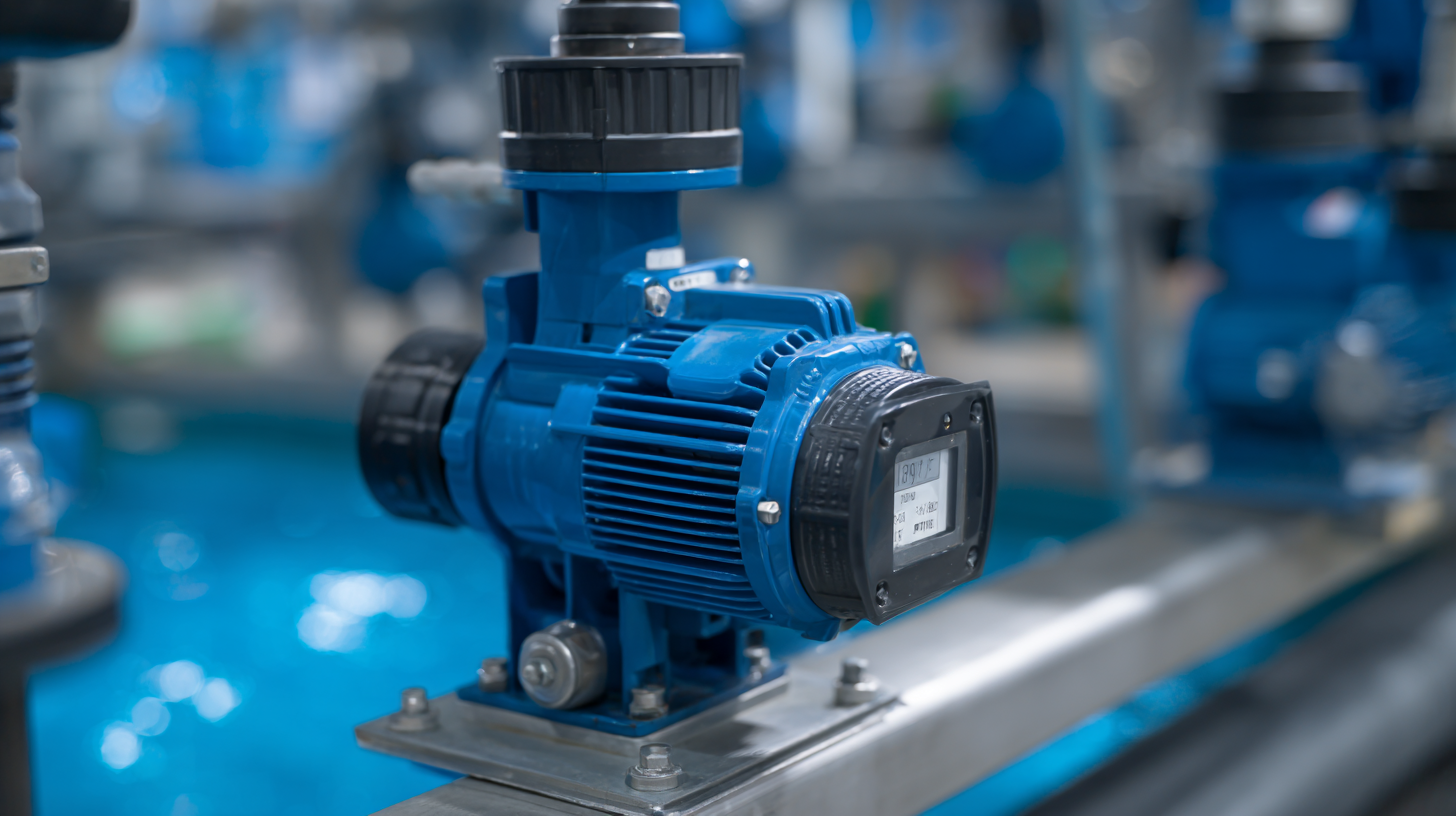 Furthermore, the integration of chemical metering pumps into treatment facilities not only aids in improving water quality but also contributes to cost savings by reducing chemical overuse and promoting sustainable practices. As such, understanding the benefits and applications of chemical metering pumps is essential for industry stakeholders aiming to enhance the effectiveness of their water treatment solutions in an ever-evolving market landscape.
Furthermore, the integration of chemical metering pumps into treatment facilities not only aids in improving water quality but also contributes to cost savings by reducing chemical overuse and promoting sustainable practices. As such, understanding the benefits and applications of chemical metering pumps is essential for industry stakeholders aiming to enhance the effectiveness of their water treatment solutions in an ever-evolving market landscape.
Benefits of Precision in Chemical Metering Pumps for Water Treatment
Chemical metering pumps play a crucial role in modern water treatment systems, particularly due to their precision in delivering chemicals at required concentrations. The ability to accurately dose chemicals ensures that water treatment processes are both effective and efficient, minimizing waste and optimizing the use of costly additives. As water treatment facilities strive to enhance their operational efficiency, the precision provided by these pumps becomes indispensable, allowing for better control of chemical reactions and improved quality of treated water.
The growing demand for chemical metering pumps is reflected in the expanding global market. Predictions indicate that the market for these pumps will reach approximately $7.1 billion by 2035, demonstrating a steady compound annual growth rate. This trend highlights the increasing reliance on advanced dosing technologies in water treatment applications.
With the integration of innovative solutions, operators can ensure compliance with regulatory standards while maintaining consistent water quality, ultimately safeguarding public health and the environment.
Enhancing Water Quality through Accurate Chemical Dosing
Chemical metering pumps play a crucial role in modern water treatment systems, significantly enhancing water quality through precise chemical dosing. According to a report from the Water Environment Federation, the accuracy of chemical dosing can improve treatment efficacy by over 30%, effectively reducing contaminants and achieving regulatory compliance. These pumps ensure that the right amount of chemicals, such as chlorine or coagulants, is delivered consistently, preventing both underdosing and overdosing, which can lead to water quality issues and increased operational costs.

Moreover, advancements in technology have allowed for the integration of smart dosing systems that optimize chemical usage based on real-time water quality data. A study published in the Journal of Water Process Engineering revealed that facilities utilizing intelligent metering pump technology experienced a 25% decrease in chemical expenditure while simultaneously enhancing treatment performance. This indicates that not only do chemical metering pumps improve the accuracy of dosing, but they also contribute to a more sustainable and cost-effective water treatment process. By ensuring precise chemical application, these pumps help safeguard public health and improve overall water quality in our communities.
Cost-Effectiveness of Chemical Metering Pumps in Operational Efficiency
Chemical metering pumps play a pivotal role in enhancing the operational efficiency of modern water treatment systems. These pumps are specifically designed to deliver precise volumes of chemicals at controlled rates, thereby ensuring optimal dosing for various treatment processes. This high level of accuracy minimizes waste and lowers chemical consumption, which directly contributes to cost savings. By maintaining an exact dosage, water treatment facilities can also achieve higher compliance with environmental regulations, further reducing the risk of fines and operational disruptions.
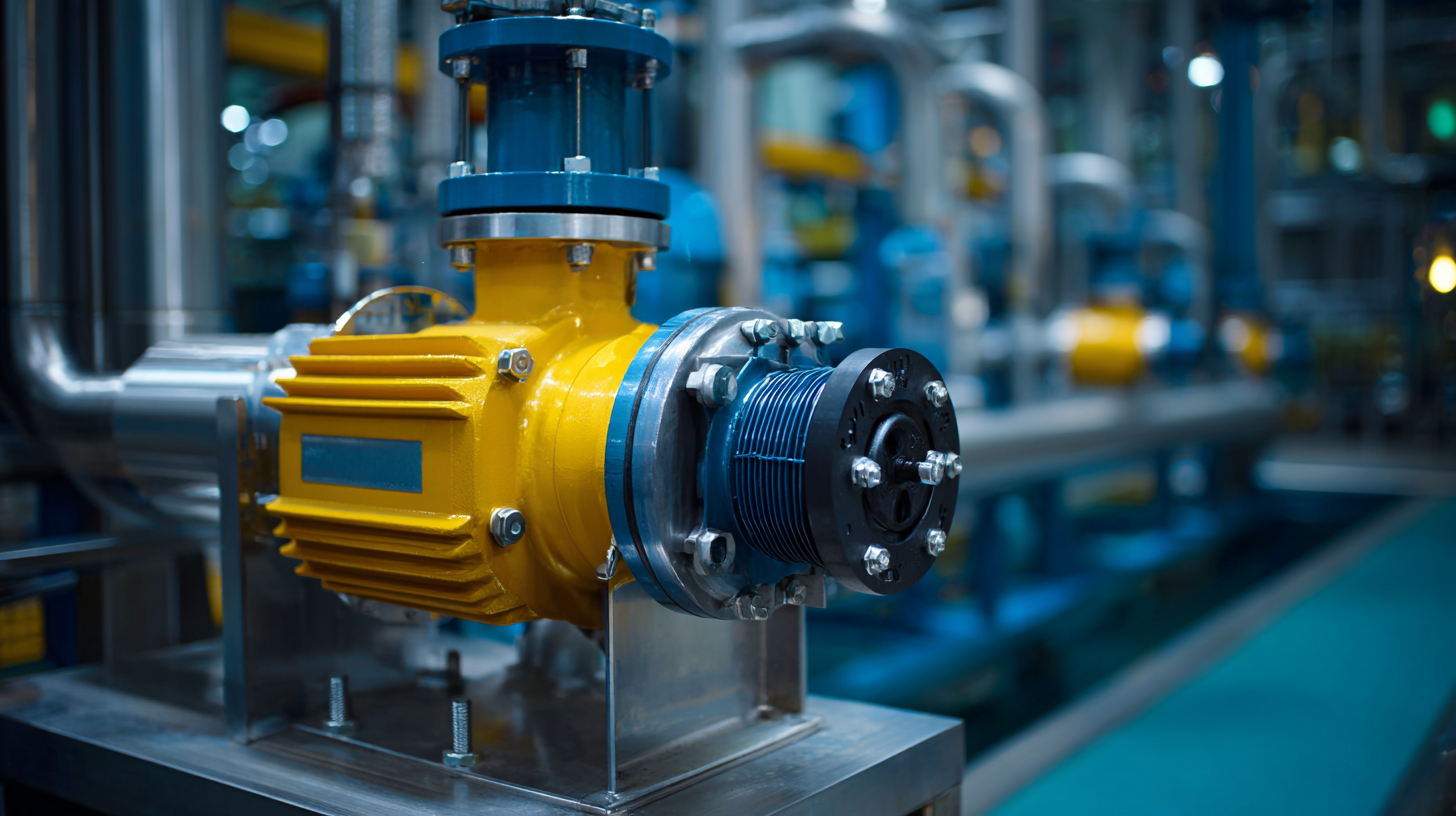
Additionally, the cost-effectiveness of chemical metering pumps extends beyond just chemical savings. Their automation capabilities allow for reduced labor costs as they can operate continuously without the need for constant monitoring. This not only streamlines operations but also allows personnel to focus on other critical tasks within the system. Moreover, the longevity and reliability of these pumps reduce maintenance expenses and unscheduled downtimes, making them an economically sound choice for water treatment facilities aiming to enhance their operational efficiency while controlling costs.
Innovations in Chemical Metering Technology for Sustainable Solutions
Innovations in chemical metering technology have played a pivotal role in enhancing the efficiency and sustainability of modern water treatment systems. These advanced metering pumps are designed to deliver precise chemical doses, ensuring optimal treatment while minimizing waste. With the integration of smart sensors and IoT capabilities, these pumps can continuously monitor water quality parameters in real-time, allowing for immediate adjustments in chemical feed rates. This not only improves the effectiveness of treatments but also reduces the environmental impact of excess chemicals entering ecosystems.
Moreover, recent advancements in materials and design have resulted in chemical metering pumps that are more durable and energy-efficient. New materials resist corrosion and wear, extending the lifespan of equipment and reducing maintenance costs. Additionally, energy-efficient designs lower power consumption, aligning with sustainability goals while ensuring effective operation in demanding environments. As water treatment facilities adopt these innovations, they not only enhance the quality of treated water but also contribute to broader environmental stewardship efforts in the face of water scarcity and pollution challenges.
Understanding the Benefits of Chemical Metering Pumps in Modern Water Treatment Systems
| Dimension | Details |
|---|---|
| Flow Rate | 1 to 5000 L/h |
| Pressure Range | Up to 30 bar |
| Accuracy | ± 1% of full scale |
| Power Supply | AC & DC options available |
| Materials | Corrosion-resistant, chemical-duty materials |
| Control Options | Manual, Remote, and PLC control available |
| Applications | Water treatment, chemical dosing, wastewater management |
| Environmental Impact | Reduced chemical waste and optimized resource use |
| Smart Features | Integration with IoT for real-time monitoring |
Ensuring Safety and Compliance with Chemical Metering Systems in Water Treatment
Chemical metering pumps play a crucial role in modern water treatment systems, ensuring that the precise dosage of chemicals is administered to safeguard public health and meet regulatory standards. According to a report by the Global Water Intelligence, the global water treatment market is projected to reach $1 trillion by 2025, with increasing emphasis on compliance with stringent safety regulations. This growth emphasizes the need for advanced metering systems that not only enhance the effectiveness of water treatment but also ensure adherence to legal requirements regarding chemical usage.
The accuracy and reliability of chemical metering pumps are vital for maintaining safety in water treatment processes. A study published by the American Water Works Association indicates that improper dosing can lead to a 30% increase in chemical waste, posing both environmental and financial concerns. Moreover, by automating chemical dosing, these systems minimize human error and enhance operational efficiency. As regulatory bodies enforce stricter compliance protocols, the adoption of advanced chemical metering systems becomes essential for treatment facilities striving to maintain safe and compliant operations while optimizing resource use.
Related Posts
-

7 Essential Features of the Best Chemical Metering Pumps for Global Buyers
-
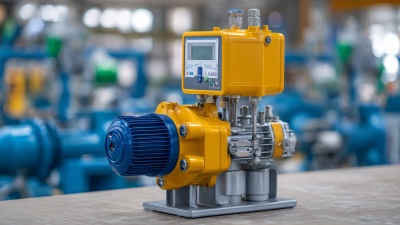
How to Optimize Your Chemical Metering Pump for Maximum Efficiency
-
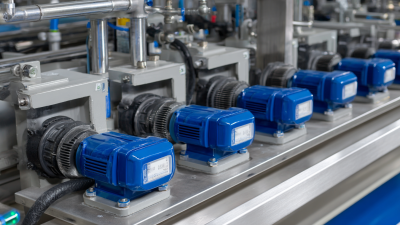
How to Choose the Right Chemical Metering Pump for Your Industry Needs
-
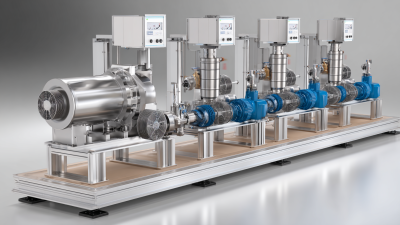
Maximizing Efficiency: How Chemical Feed Pumps Improve Industrial Process Control
-

Innovative Applications of Diaphragm Pumps Across Various Industries
-

5 Unmatched Benefits of Using Chemical Metering Pumps for Precision in Industry
